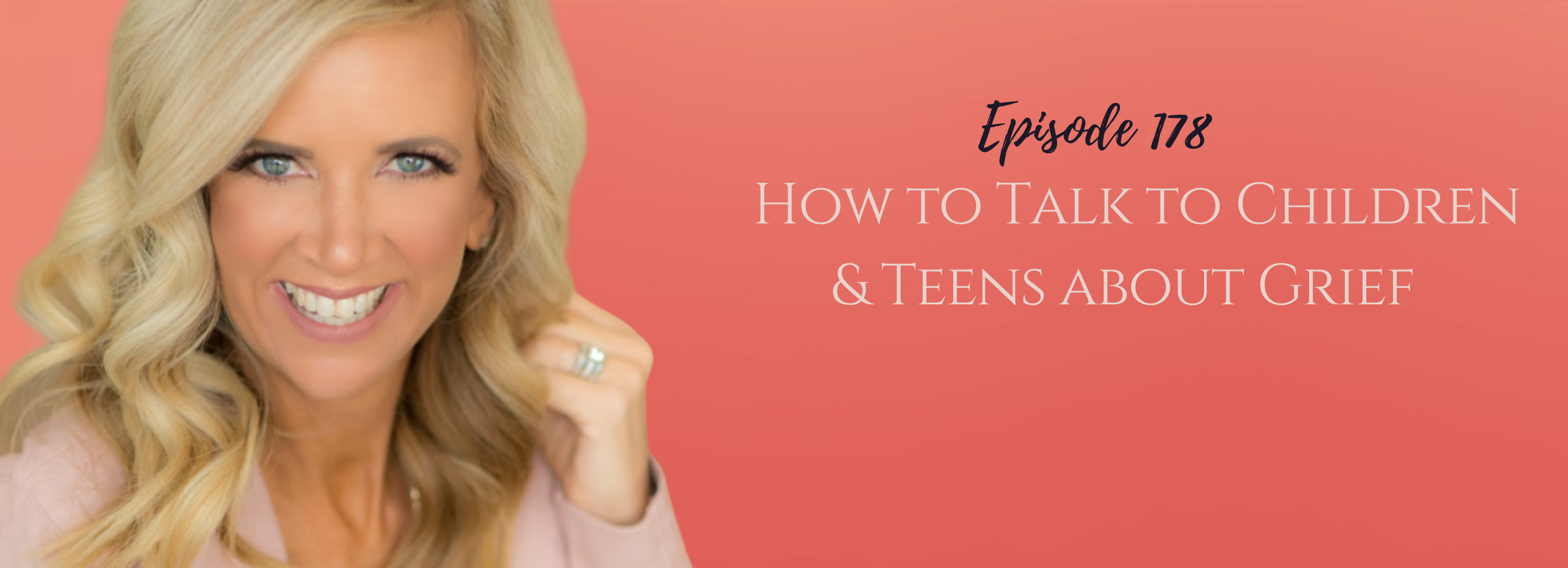
How to Talk to Children & Teens about Grief
with Katie Lear, LCMHC, RPT, RDT| 9.14.2022
In this episode, Kristen talks with Katie Lear, a licensed counselor, play therapist and author, about how to talk to children and teens about grief and death, and some practical tools to help them cope with grief.
You'll Learn
- Do children grieve the same as adults
- How to help children and teens cope with grief
- Simple exercises to help kids process grief and loss
- Katie Lear's Book: 100 Activities for Grieving Children: A Parent’s Guide to Managing Childhood Grief
Resources
14 Signs You Were A Parentified Child
For counseling services near Indianapolis, IN, visit www.pathwaystohealingcounseling.com.
Subscribe and Get a free 5-day journal at www.kristendboice.com/freeresources to begin closing the chapter on what doesn’t serve you and open the door to the real you.
Subscribe to the Close the Chapter YouTube Channel
This information is being provided to you for educational and informational purposes only. It is being provided to you to educate you about ideas on stress management and as a self-help tool for your own use. It is not psychotherapy/counseling in any form.